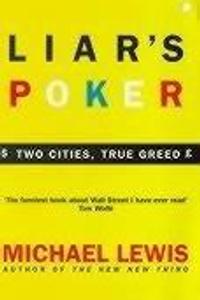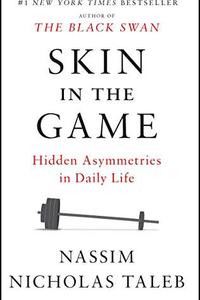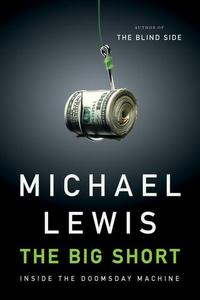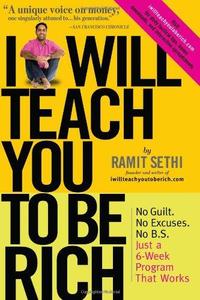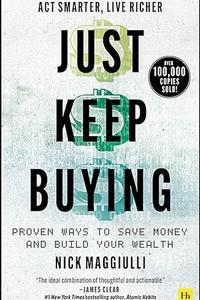
Rich Dad Poor Dad by Robert Kiyosaki
by Robert T. Kiyosaki
In One Sentence
The rich don't work for money—they make money work for them through assets like real estate and businesses, while the poor and middle class stay trapped in the rat race.
Key Takeaways
- Assets put money in your pocket; liabilities take it out—most people confuse the two
- The rich buy assets first and let assets buy luxuries; the poor buy luxuries directly
- Financial literacy is the most important skill—it's not taught in schools
- Your house is not an asset—it's a liability that takes money from your pocket
- Mind your own business: build a portfolio of assets while keeping your day job
- Work to learn, not to earn—seek jobs that build skills and connections
Summary
An excellent book on how to become wealthy. I wish I had read this sooner.
This book is focused more on overall principles, but there are enough concrete examples to inspire further research and get you thinking.
If only this was taught in school!
Who Should Read This Book
- Anyone wanting to escape the paycheck-to-paycheck cycle
- People new to personal finance and investing
- Those who want to understand the mindset differences between rich and poor
- Young adults who want to build wealth early
FAQ
What is the main lesson of Rich Dad Poor Dad?
The central lesson is that financial literacy—understanding assets, liabilities, income, and expenses—is the key to building wealth. Rich people acquire assets (things that put money in their pocket), while poor and middle class acquire liabilities (things that take money out) while thinking they're assets.
What is an asset vs liability in Rich Dad Poor Dad?
An asset puts money in your pocket through income (rental property, dividend stocks, businesses). A liability takes money out (mortgages, car payments, credit cards). Kiyosaki controversially argues your home is a liability, not an asset, because it costs you money monthly.
📖 Chapter-by-Chapter Breakdown
Click to expand the full detailed notes for every chapter →
📖 Chapter-by-Chapter Breakdown
Click to expand the full detailed notes for every chapter →
Notes
Introduction
- Mindset matters when it comes to money. “Broke is temporary. Poor is eternal.”
Lesson 1: The poor and middle class work for money. The rich have money work for them.
- People’s lives are controlled by two emotions: fear and greed.
- Fear of being without money motivates us to work hard. Greed gets us to spend that money. Most people never break that cycle.
Lesson 2:It’s not how much money you make. It’s how much money you keep.
- Rich people acquire assets. The poor and middle class acquire liabilities that they think are assets (like homes).
- Simply defined, assets put money in your pocket. Liabilities take money out.
- If you want to be rich, spend your life buying assets.
- Educational doesn’t teach a person to be financially literate. Many people are highly educated but know nothing about money.
- Houses are one of the things that most people mistake for assets. That is rarely (if ever) the case.
- This doesn’t mean don’t buy a house, or a bigger house; it just means you may want to buy assets that will produce the cash flow to buy the bigger house.
- Definition of wealth: if I stopped working today, how long could I survive?
Lesson 3: The rich focus on their assets while everyone else focuses on their income.
- To become financially secure, you need to mind your own business.
- Keep your day job, but start buying real assets.
- Keep expenses low, reduce liabilities, and build a base of solid assets.
- Buy luxuries last.
So what are assets?
- Businesses that are run/managed by other people (don’t require my presence)
- Stocks
- Bonds
- Income-generating real estate
- Notes (IOUs)
- Royalties from intellectual property (music, scripts, patents)
- Anything else that has value, produces income or appreciates, and has a ready market
Lesson 4: Use corporations to build your wealth.
- Corporations pay lower tax than individuals, which is why they’re good for building wealth.
- In addition, there are often tax breaks—like Section 1031 in the US—that give advantages to specific transactions.
- Financial IQ is made up of four broad areas: accounting, investing, understanding markets, and the law.
- Business owners with corporations: earn, spend, THEN pay taxes.
- Employees who work for corporations: earn, THEN pay taxes, then spend.
Lesson 5: The rich invent money; often it’s not the smart that get ahead, but the bold.
- We are all held back by self-doubt.
- Financial genius requires both technical knowledge and courage. If fear is too strong, genius is suppressed.
- Financial intelligence is about having more options, and being more creative in how you solve financial problems.
- The single most powerful asset we have is our minds.
- If the opportunity is too complex or you don’t understand the investment, don’t do it. Simple math and common sense are enough to do well financially.
- As a general philosophy, plant small seeds in your asset column. They don’t have to be big investments.
- A passive income of $100K per year is not hard to achieve, and can be done in 5 to 10 years depending on the market and how smart you are.
- Remember to have fun. Most people never win because they’re afraid of losing. But building your asset column can be as fun a game as you’ve ever played.
- The best deals are usually the ones you put together yourself, not that are packaged. To do this well you need to develop three main skills: find opportunities that everyone else missed, raise money, and organize smart people.
- Example: “typing up” a real estate deal, where you find the buyer and seller and agree to terms, but before handing over any money.
Lesson 6: Work to learn, don’t work for money.
- You want to know a little about a lot, not be specialized in one small area.
- Learn to sell, learn trade, learn leadership. Find broad areas to learn about that will help you in business and build your skills.
- Question: “Where is this daily activity taking you?”
- Fear of failure and rejection are two blockers to success too; learn to overcome those.
- The most important skills to learn: management of cash flow, management of systems, management of people.
- The most important specialized skills are sales and marketing.
- Communication skills are crucial too: writing, speaking, and negotiating.
7: Overcoming Obstacles
- There are five main reasons why financially literate people may not develop big asset columns: fear, cynicism, laziness, bad habits, & arrogance.
- “If you hate risk and worry, start early.” It’s easier to take risks and learn when you’re young.
- You have to overcome the fear of taking risk if you want to make money.
- Failure inspires winners. Failure defeats losers.
- If you have a little money and you want to be rich, you must first be focused, not balanced. Put a lot of eggs in one basket. FOCUS: Follow One Course Until Successful.
- “Cynics criticize, and winners analyze.”
- “I-don’t-wants hold the key to your success.” For example, no one wants to fix toilets—so find a great property manager. They will help your cash flow go up (by running great rentals, etc.) and often can source deals too.
- Overcoming laziness: change “I can’t afford it” to “how can I afford it?” Use your greed to your advantage.
- “How can I afford to never work again?”
8: Getting Started
- There is gold everywhere. Most people aren’t trained to see it.
- Find a greater reason for what you’re doing. Having a purpose will keep you motivated. You can start with “don’t wants” (ex: “I don’t want to work my whole life”) which makes it easy to come up with “wants” (”I want to have enough cashflow each month to live without a job”).
- Make the hard daily choices. The choice to learn (what you do with your time), to save (what you do with your money)
- Choose friends carefully. Choose friends who you can learn from.
- Master a formula and then learn a new one. Learn fast and have the discipline to implement what you’ve learned. The skill of how to learn fast is even more important with the pace the world changes today.
- Pay yourself first. Be disciplined in putting money in your assets column first. Don’t get into consumer debt.
- Pay your brokers well. Bad advice will cost you far more than paying professionals well. Their services should make you money. Be careful choosing though, you want brokers who are like you and have expertise in your area. Information is king in this age.
- Use assets to buy luxuries. Create money from assets and THEN buy luxuries.
- Give and you will receive. Whenever you feel short or in need of something, try to give first. It will come back to you.
- Look for new ideas. At the bookstore, online, wherever. Find new ideas and formulas and try them out.
- Find someone who has done what you want to do. Find the workers in the county office, the experts in the field, whatever, and take them to lunch to learn from them.
- Take classes, read, and attend seminars. You’ll find more opportunities this way.
- Make lots of offers. Make conditional offers (example: approval of my business partner). You never know when you’ll find one that works out. So many people make things more difficult than it is, and take it too seriously.
- Profits are made in the buying, not the selling.
- Look for people who want to buy first. If you find someone wanting to buy, you can find what they want and take a piece of the action. Buy the pie, and cut it in pieces.
- Action always beats inaction.
Final Thoughts
The key to becoming wealthy is the ability to convert earned income into passive income or portfolio income as quickly as possible.
